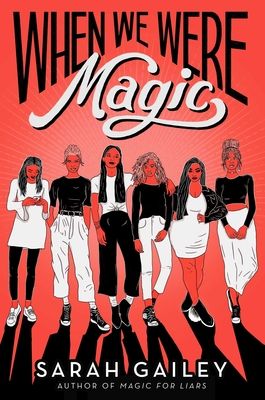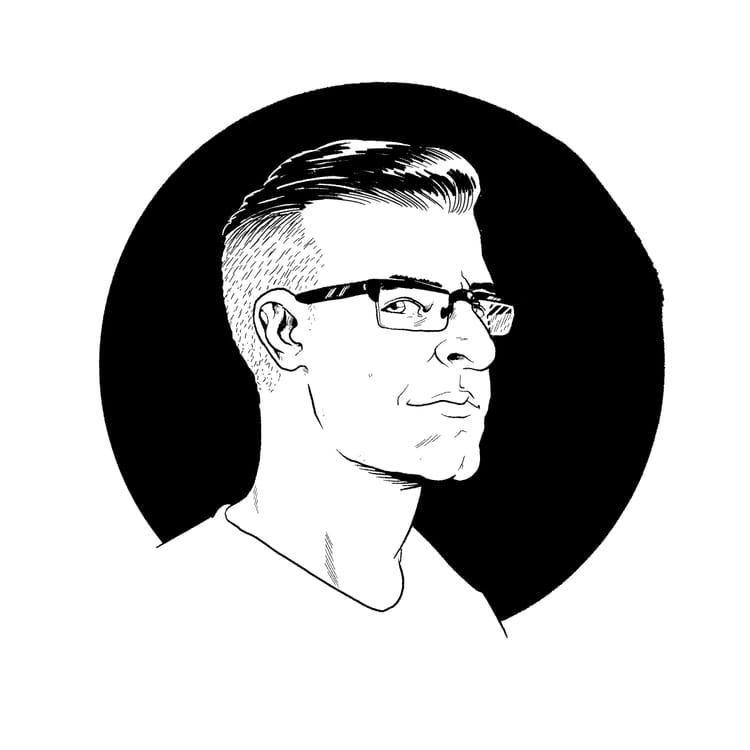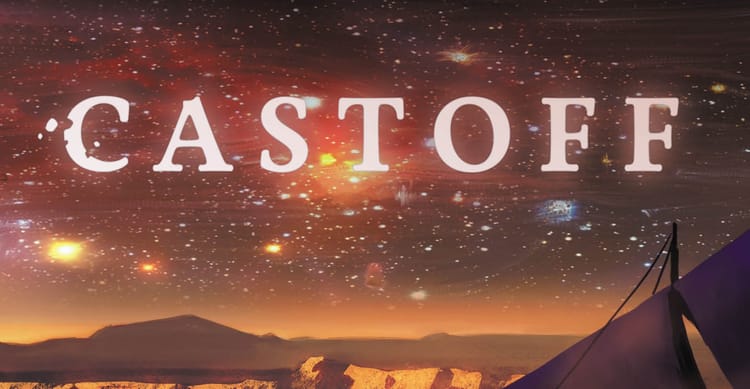The Maybe Book (Chapter 2)
A couple of weeks ago, I shared the first chapter of a book I really shouldn’t be writing.
It won’t leave me alone. It won’t let me rest. It won’t stop creeping out of the warm folds of my brain in the wee hours of the morning, hissing write me write me write me.
So here’s chapter two.
The house on Maribel Street was always haunted.
For the longest time, it was haunted by my father, even though he was as alive as a person can be. His anger was a weight in the air, a prickling on the back of my neck, a chill even when the fire in the hearth was stoked and the windows were shut tight.
His rage stopped haunting the house one hundred years ago. Once he was gone, I suppose I took his place.
Maribel Street is the main street, so it stretches right through the center of the town. The mayor’s house is at one end and my house is at the other, and that’s never changed, not since the town was built.
The mayor’s house is all the way at the West end of Maribel Street. When I lived there, that whole third of the street on the West side of town was lined with tall gabled houses that had big bay windows and lush green lawns you wanted to sink your fingers into. You’d want to tear up fistfuls of the grass just to ruin those lawns, you’d want to lie facedown in them and breathe in the money-smell of the soil, but if you tried it someone would turn a hose on you.
The middle of Maribel street was the pit of the plum back then, and it still is now, more or less. It was lined with businesses, the hatshop and the flowershop and the grocer and the tobacconist. The sidewalks were always crowded, even on hot days and rainy ones, because there was shade and shelter under the eaves of those shops and it felt better to be outside complaining at your neighbors about the weather than inside, alone, avoiding it.
The East end of Maribel street had houses like mine, short squat houses with clotheslines in the front yard and vegetable gardens in the back. On the East end of Maribel street you minded your business and let your neighbors mind theirs, and whatever you heard, you didn’t say a word about it.
My house was all the way at the far east end of Maribel Street. It seemed like the entire town started at my front door. There was nothing behind us, and there was everything in front of us, that’s how it felt. I would stand on my front porch and try to see all the way to the Mayor’s house at the other end of that long, straight street, would strain my eyes until my mother caught my ear and told me to come inside and help her keep the house in order.
Things have changed since then. I haven’t seen for myself, of course, but I see the people who come into my house. I hear the things they talk about. I’m not stupid. I was never stupid.
A lot changes in the span of one hundred years. A lot doesn’t. They started coming into my house not long after I died, because they wanted to find out what happened to me, and they wanted to know where my body was, and they wanted to clutch at each other and shiver. They told each other what they thought had happened, and they argued over whether it was me or my father that did it.
None of them knew the truth, and I wouldn’t have wanted to make them understand, not even if I could have, which I couldn’t. I didn’t have a voice anymore, not a real one. I lived in the flaking plaster of the walls, and the rippling glass of the old windows, and the bricks of the hearth. I lived in the floors and the ceiling for so long that I almost forgot what it had been like to have a voice at all.
But even if I couldn’t speak to them, I could see them. I could hear them. Their investigations and their seances and their pranks and their dares. Sometimes it felt like they were looking right at me. They would stare hard at a spot on the floorboards, a place where I used to stand when I was ironing shirts, a place where my bare feet had worn a shine into the wood. They would stare at it and I would feel sure that finally someone knew I was there. Finally someone was going to let me tell them my name, was going to let me ask them for help.
But then they would turn to their friends and say that they were sure they’d found a bloodstain, that maybe this was the place where Hannah Everett had died. Their eyes would shine with excitement, and my hope would evaporate.
Hannah was six years younger than me, born just at the time when I was old enough to start wishing there was someone else to help bear the weight of life in the house on Maribel Street. She had bright, beautiful eyes, trouble-eyes, and her hair was yellow where mine was brown, and because of that hair my father liked her better than he liked me. He used to run his fingers through that yellow hair, which was the same yellow as his. Hannah would stand as still as a cat when he did it. He would tell her that she was his daughter and no question about it, and he would look at me when he said it, and I would look away fast because if I looked away fast enough he would see I was scared, and sometimes that was enough.
Hannah and I shared a bedroom, and every night we took turns sitting on the stool by the window, brushing each other’s hair out and then braiding it up tight for bed. Hannah winced when the brush found a tangle, but she never made a sound. She was smart like that. She knew not to laugh or cry out or ask silly questions, not after the sun went down. Quiet as a mouse, I told her when she was still a baby, quiet as a stone. She listened to me.
And then, once we were in the bed we shared, Hannah would put her mouth next to my ear and, in a whisper so quiet only I could hear it, she would tell me stories from her day: Robby from down the street who put a beetle in her hair, or Julianna with the shiny black hair and bows on her socks who gave her a secret apple, and she had saved half of the apple for me under the pillow if I wanted it.
She told me everything that happened to her, and everything she wanted and everything she was afraid of. Except that the things she said she was afraid of were never the things she was actually afraid of. Bears and bats and the man who sharpened scissors in the middle of town, those were the things that she said scared her. I let her have the lie.
It was like that every night, her lips almost touching my ear. She would whisper on and on until her voice got slow and breathy, and she would turn into a weight beside me, as warm and heavy as a fresh loaf of bread.
I’m glad I never had to learn how to sleep without her. I don’t think I could have done it.
They tore the bedroom apart, of course. The bedding is long gone, and the mattress is infested with mice, and the bedposts have a thousand letters carved into them, initials put there by people who came to clutch each other and shiver and argue. Even before the search and the mice and the letters, the bed was ruined.
But the stool is still there. The stool where we sat a thousand times, brushing each other’s hair without saying a word, Hannah’s reflected eyes finding mine in the windowpane. She had a way of looking at me where her mouth would quirk to one side and her eyes would have a joke in them, some quiet joke that I knew she’d whisper to me later, and maybe it would be funny and maybe it wouldn’t but either way I would have to bite my lips to keep from laughing.
When there is a house that no one will ever live in again, people bring their secrets to it. They hide things there — treasures and secrets and sins and violence and love. They turn it into a place to be cruel to each other, because they’re afraid, and fear slaps a dial onto cruelty and turns it up as high as it can go. They turn it into a place to want each other, because fear puts a dial onto want, too. They turn it into what it is, and without them, a house is just a house, no matter what happened there. It’s just empty.
That is how I first met Ethan and Piper and Cory: they had come to my house to do their part. The people I grew up with were long gone, and their children were too old to be concerned with making sure my house was haunted, so it was Ethan and Piper and Cory’s turn, them and their friends and their enemies. I’d seen so many of the others — boys in Carhartt jackets, not so different from the one my father wore, and jeans not so different from the ones he wore. Girls wearing clothes I never would have dreamed of wearing, wearing smiles that were brighter than anything I’d ever seen on my mother’s face or felt on my own.
The girls fascinated me in death the same way they had in life. For all my sixteen years alive, I was hypnotized by the way a girl can move through a room fast and subtle, like a secret moving through a church during service. The way girls laughed, the way they wrapped their hands around things they wanted to own, they way their eyes got sharp when they were angry. The way they smelled. Boys always seemed the same to me, all of them echoes of each other, all of them saying the same three sentences over and over again, all of them looking at each other with the same eyes. I could never tell the difference between them, not really.
But girls. Girls.
It mattered to me while I was alive, but it didn’t make a difference in the way I lived my life, which was a regret I chewed on when I’d worn my other regrets into pulp. The town was small, and everyone knew everyone, and by the time I knew I wasn’t the only girl who watched girls the way I did, I’d been dead for too long to do anything about it. If I knew then what I know now, maybe I would have said something to Molly Two-tone, whose real name was Molly Tutonne and who had straight black hair that fell between her shoulderblades as black as roofing tar, who had bright green eyes and a laugh that you could hear from a block away. Molly Two-tone, who came to my house after I died and stood in the kitchen and whispered that if I was there and if I could hear her, she wanted me to know that she wished she’d kissed me when she had the chance.
There wasn’t a thing I could do to let her know I’d heard her. All I could do was watch her cry, and then watch her leave, closing the door quiet as she could when she went. She didn’t ever come back again.
But her granddaughter did.
Maybe I knew, when Piper walked in with Cory and Ethan. Maybe I knew she was Molly’s granddaughter. Or maybe I saw Piper and thought, for a breath-held instant, that Molly had come back to see me again. I lost track of time more and more often as the years went on, forgetting sometimes how far I was from my life. Forgetting that it had happened one hundred years before, and not just that instant.
When Piper eased the front door open and stepped inside, waving her hand in front of her face to ward off cobwebs, she looked just like Molly — that long black hair and those jewel-bright eyes, and a mouth with a smile hidden at the corners of it. But once the moment of hope melted away, I could see the differences between Piper and her grandmother, and there were plenty of them. And then two boys walked in behind her, and they shut the door.
Piper turned to face them, and she let that hidden smile loose, and it was a different kind of smile than I’d ever seen on Molly’s face — bright and sharp and cruel, ready to have that cruelty dialed up as far as it needed to go. When I saw that smile on Piper’s face, I knew.
I knew that she was nothing like Molly at all.
If you’re feeling impatient for more, might I recommend you tide yourself over by preordering WHEN WE WERE MAGIC? It’s my YA debut, a novel about a group of six best friends whose magic powers go horribly awry on prom night, leaving a boy dead and a lot of questions between them. I think you’ll love it.







Member discussion